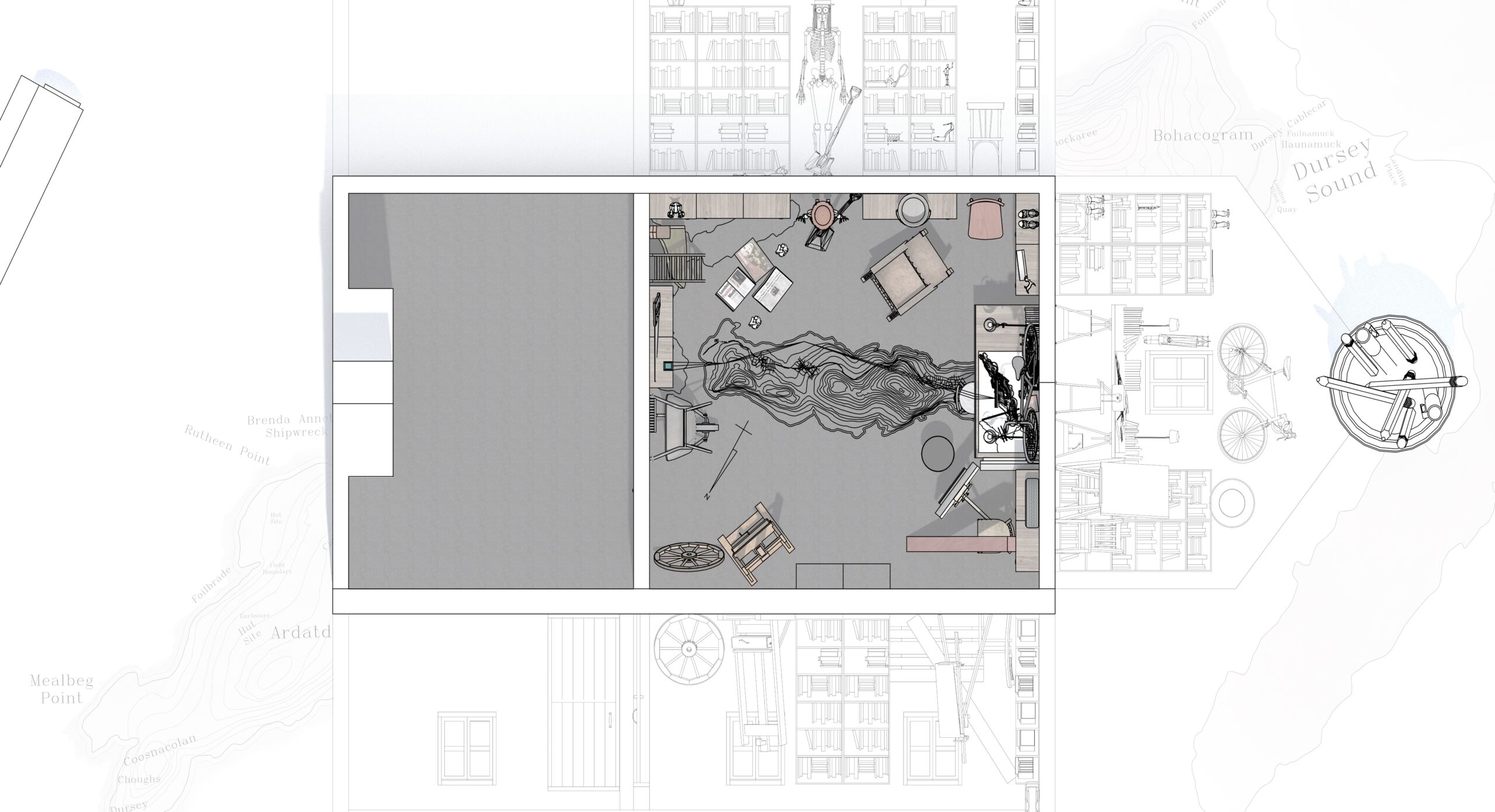An examination of the works and methodologies of artist-bricoleur Tomi Ungerer prompts the reimagination of Dursey island, as a landscape for a community of creatives, researchers and artists to inhabit the island while engaging in the bricolage of materials, skills and ideas.
Ungerer’s studio in West Cork, Place du Bricoleur, is explored as a contained version of his creative vision. The thesis relies on Ungerer’s methodologies as an artist, as well as his mythological depiction of an Irish island in his book Fog Island. A vision for a remote life is illustrated in Ungerer’s Far out isn’t Far enough: Life in the Back of Beyond, and this vision is projected onto Dursey island as an uninhabited island which perfectly manifests his description of a “life at the edge of the world”. Ungerer’s ‘Place du Bricoleur’ is envisioned as a site within a site, and methodologies collected from his studio are interlaced with observations collected from Dursey island.
An adopted methodology of bricolage and improvisation generates a series of architectural interventions, conceptually informed by artefacts held within Ungerer’s Place du Bricoleur studio. The intention is to emphasize the role of found materials for the project, and to highlight the potential role of improvisation in provoking new modes of design that encompass creativity and adaptation. The project engages with the question of scarcity, and the potential it holds to establish new ways of interaction with the material world. In this way, the thesis proposes the reimagination of a self-sufficient community that employs an island way of dwelling. Dursey island, a uniquely situated and uninhabited island, is reimagined as a creative and functional landscape. In keeping with Ungerer’s vision for a life at the edge, the proposed interventions are situated in proximity to the island’s distinct cliffs, and presented in a style informed by Ungerer’s work as an illustrator. The island becomes a landscape for creative expression, as well as for research and experimentation to facilitate the generation of novel perspectives and ideals. Through various acts of bricolage, a scenario is presented for sustainable future modes of living, working, and learning.
